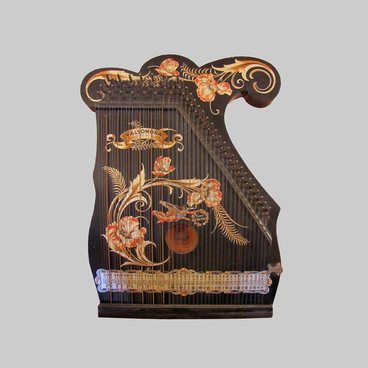The Bible printed in French was donated to the museum by Georgy Chicherin’s grand-niece Natalia Chicherina. It was passed to her from her grandmother, Natalia Chicherina (born Govorova), who, after her wedding with Nikolay Chicherin, received a Bible as a gift from her mother-in-law, Zhorzhina Chicherina.
Zhorzhina Chicherina was a member of the Society for the Encouragement of Spiritual and Moral Reading. That society was founded by a Russian religious figure, a retired colonel of the guards, Vasily Pashkov. He was one of the richest people in Russia and led a life full of entertainment as a Petersburg aristocrat. However, after his religious conversion, Pashkov devoted himself to Christian service that was active, multifaceted and aimed at various social strata, including the very bottom of society.
Initially, the Pashkovites’ organization emerged in an aristocratic environment. Englishman Lord Grenville Redstock was its spiritual leader. In 1874, he first came to St. Petersburg to preach the evangelical movement.
The most active follower of his doctrine was Vasily Pashkov, from whose name the association got its name.
The ‘Pashkovites’ disseminated their teachings primarily through literary means. Since 1876, the Society for the Encouragement of Spiritual and Moral Reading began to publish a lot of brochures and issue a magazine on the same topic under the name Russian Worker.
In 1884, the Supreme Command followed: ‘To close the society for the encouragement of spiritual and moral reading and take measures to stop the spread of Pashkov’s teachings throughout the Empire.’ In 1886, the Holy Synod again prohibited the distribution of brochures of the above-named society among the people.
Pashkov himself was evicted abroad in 1884 and settled in Paris. But from there, until his death, he continued to support his like-minded people with letters and money.
The teachings of the “Pashkovites” consisted in the denial of the church as a divine institution, sacraments, liturgical rituals, church prayer, hierarchy, holy icons and in highlighting the value of good deeds for human salvation, which is accomplished by faith in Christ alone. They considered the Bible to be the only source of the religious doctrine.
Zhorzhina Chicherina was a member of the Society for the Encouragement of Spiritual and Moral Reading. That society was founded by a Russian religious figure, a retired colonel of the guards, Vasily Pashkov. He was one of the richest people in Russia and led a life full of entertainment as a Petersburg aristocrat. However, after his religious conversion, Pashkov devoted himself to Christian service that was active, multifaceted and aimed at various social strata, including the very bottom of society.
Initially, the Pashkovites’ organization emerged in an aristocratic environment. Englishman Lord Grenville Redstock was its spiritual leader. In 1874, he first came to St. Petersburg to preach the evangelical movement.
The most active follower of his doctrine was Vasily Pashkov, from whose name the association got its name.
The ‘Pashkovites’ disseminated their teachings primarily through literary means. Since 1876, the Society for the Encouragement of Spiritual and Moral Reading began to publish a lot of brochures and issue a magazine on the same topic under the name Russian Worker.
In 1884, the Supreme Command followed: ‘To close the society for the encouragement of spiritual and moral reading and take measures to stop the spread of Pashkov’s teachings throughout the Empire.’ In 1886, the Holy Synod again prohibited the distribution of brochures of the above-named society among the people.
Pashkov himself was evicted abroad in 1884 and settled in Paris. But from there, until his death, he continued to support his like-minded people with letters and money.
The teachings of the “Pashkovites” consisted in the denial of the church as a divine institution, sacraments, liturgical rituals, church prayer, hierarchy, holy icons and in highlighting the value of good deeds for human salvation, which is accomplished by faith in Christ alone. They considered the Bible to be the only source of the religious doctrine.



